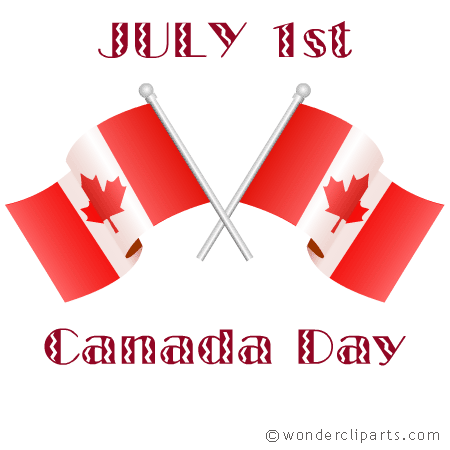 Canada Day (French: Fête du Canada) is the national day of Canada, a federal statutory holiday celebrating the anniversary of the July 1, 1867, enactment of the British North America Act, 1867 (today called the Constitution Act, 1867), which united three colonies (New Brunswick, Nova Scotia and the United Province of Canada) into a single country called Canada within the British Empire.
Canada Day (French: Fête du Canada) is the national day of Canada, a federal statutory holiday celebrating the anniversary of the July 1, 1867, enactment of the British North America Act, 1867 (today called the Constitution Act, 1867), which united three colonies (New Brunswick, Nova Scotia and the United Province of Canada) into a single country called Canada within the British Empire. Originally called Dominion Day (French: Le Jour de la Confédération), the holiday was renamed in 1982, the year the Canada Act was enacted, resulting in the patriation of the Constitution of Canada. Canada Day observances take place throughout Canada, as well as among Canadians internationally.
Frequently referred to as "Canada's birthday", particularly in the popular press, the occasion marks the joining of the British North American colonies of Nova Scotia, New Brunswick, and the Province of Canada into a federation of four provinces (the Province of Canada being divided, in the process, into Ontario and Quebec) on July 1, 1867.
Canada became a kingdom in its own right on that date, called the Dominion of Canada, but the British parliament and Cabinet kept limited rights of political control over the new country that were shed by stages over the years until the last vestiges were surrendered in 1982, when the Constitution Act patriated the Canadian constitution.
Under the federal Holidays Act, Canada Day is observed on July 1, unless that date falls on a Sunday, in which case July 2 is the statutory holiday, although celebratory events generally take place on July 1, even though it is not the legal holiday. If it falls on a Saturday, any businesses normally closed that day will generally dedicate the following Monday as a day off.